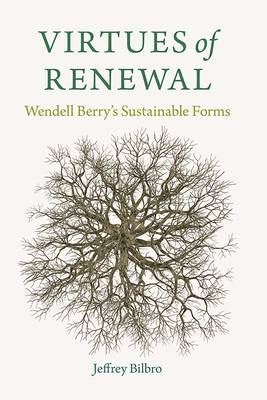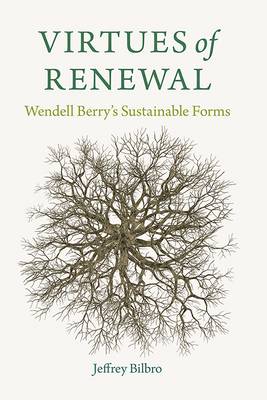
- Afhalen na 1 uur in een winkel met voorraad
- Gratis thuislevering in België vanaf € 30
- Ruim aanbod met 7 miljoen producten
- Afhalen na 1 uur in een winkel met voorraad
- Gratis thuislevering in België vanaf € 30
- Ruim aanbod met 7 miljoen producten
Omschrijving
For over fifty years, Wendell Berry has argued that our most pressing ecological and cultural need is a renewed formal intelligence -- a mode of thinking and acting that fosters the health of the earth and its beings. Yet the present industrial economy prioritizes a technical, self-centered way of relating to the world that often demands and rewards busyness over thoughtful observation, independence over relationships, and replacing over repairing. Such a system is both unsustainable and results in destructive, far-reaching consequences for our society and land.
In Virtues of Renewal: Wendell Berry's Sustainable Forms, Jeffrey Bilbro combines textual analysis and cultural criticism to explain how Berry's literary forms encourage readers to practice virtues of renewal. While the written word alone cannot enact change, Bilbro asserts that Berry's poetry, essays, and fiction can inspire people to, as Berry writes, "practice resurrection." Bilbro examines the distinct, yet symbiotic, features of these three genres, demonstrating the importance of the humanities in supporting tenable economies. He uses Berry's pieces to suggest the need for more robust language for discussing conservation, ecology, and the natural -- and regenerative -- process of death. Bilbro additionally translates Berry's literature to a wider audience, putting him in conversation with philosophers and theologians such as Ivan Illich, Willie Jennings, Charles Taylor, and Augustine.
The lessons that Berry and his work have to offer are not only for those interested in cultivating the land, but also for those who cultivate their communities and live mindfully. In short, these lessons are pertinent to all who are willing to make an effort to live the examined life. Such formative work is not dramatic or quick, but it can foster the deep and lasting transformation necessary to develop a more sustainable culture and economy.
Specificaties
Betrokkenen
- Auteur(s):
- Uitgeverij:
Inhoud
- Aantal bladzijden:
- 246
- Taal:
- Engels
- Reeks:
Eigenschappen
- Productcode (EAN):
- 9780813179421
- Verschijningsdatum:
- 18/02/2020
- Uitvoering:
- Paperback
- Formaat:
- Trade paperback (VS)
- Afmetingen:
- 152 mm x 229 mm
- Gewicht:
- 367 g

Alleen bij Standaard Boekhandel
Beoordelingen
We publiceren alleen reviews die voldoen aan de voorwaarden voor reviews. Bekijk onze voorwaarden voor reviews.











